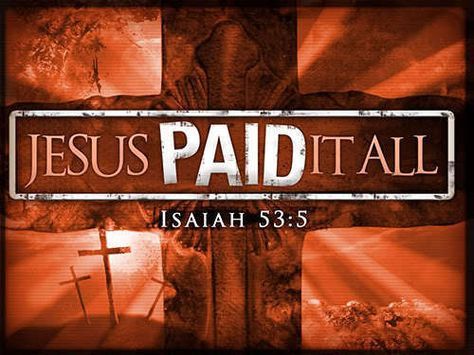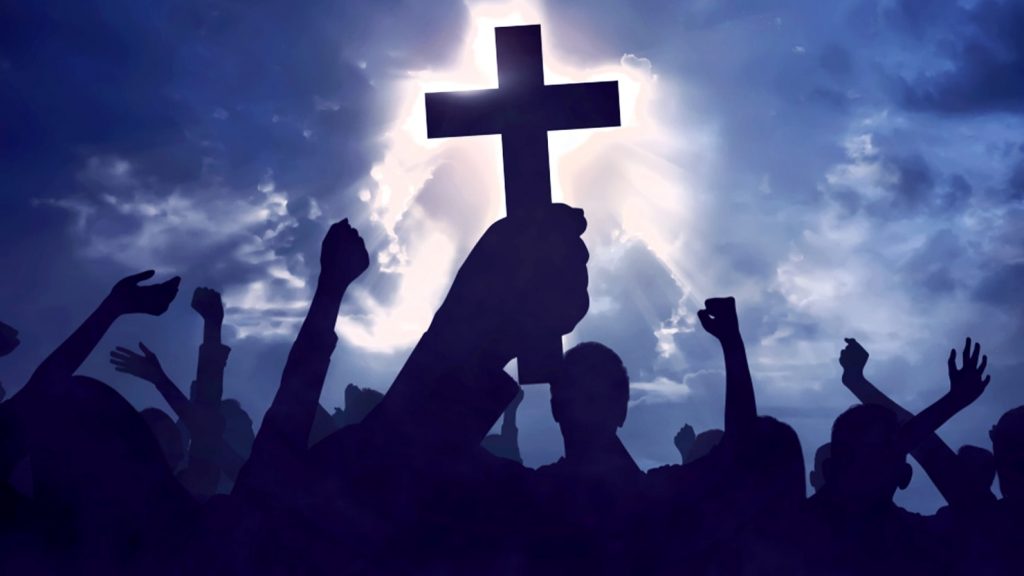Will You Lose The Genuineness Of Your Salvation? (7)

(…continues from part six…)
7) Let us gothrough some theological facts.
Does it make an availability of essence in our thinking prowess that the safety of the truly born again Christian becomes, immediately, the personal responsibility of God? Why would God make the divine promise of, “And I will give you rest” of Matthew 11:29? Does it not occur to our understanding that ‘rest’ in this verse is anapauō (an-ap-ow’-o), which means: ‘To cause or permit one to cease from any movement or labour in order to recover and collect his strength; To give rest, refresh, to give one’s self rest, take rest; To keep quiet, of calm and patient expectation’? Anapauō comes from ana (an-ah’): ‘Into the midst, in the midst, among, between’ and pauō (pow’-o): ‘To make to cease or desist; To restrain a thing or person from something; To cease, to leave off; Have got release from sin; No longer stirred by its incitements and seductions.’

Get born again: Solution to the sin question.
Anapauō is divine solution to the sin question. Check out every scriptural pointer to the soteriology, it contains not any string of: ‘do’, ‘do not’ or ‘if you do not’. The only scripture I know of, with an attachment of a serious and huge string is found in John 3:3, “Except a man be born again, he cannot see the kingdom of God.” The attached string, ‘except’, which is ean mē (eh-an’ may): ‘if not, unless, whoever … not;’ makes a categorical, “unless you accept Jesus as Lord and Saivour, there is no salvation. This is the most incontrovertible fact of Scripture – no Jesus, definitely, there is no salvation. This exception is quite different from the 5th Article of The Remonstrance, “unless you continue to persevere” – with works of Adamic toil – one stands to lose the salvation, inspired by Jacobo Arminius.
Five negatives intended to strengthen Divine promise are the employment of Pauline writing of “I will never leave thee, nor forsake thee” (Hebrews 13:5); where ‘never’ is ou me (ou mee’): ‘a double negative strengthening the denial, “not at all.” The word ‘nor’ is oude (ou-d̮e’): ‘not however’ and ou me of the above. ‘Forsake’ is egkataleipo (eng-ka-ta-lei’-pō): ‘1. to leave behind in some place. 2. (in a good sense) let remain over. 3. (in a bad sense) to desert.’ What is the reason why God will not leave nor forsake the born again? God is love. One of the characteristics of love is in 1Corinthians 13:8 “Charity never faileth:” and the word ‘never’ is oudepote (ou-d̮e’-po-te): ‘not even at any time, i.e. never at all;’ while ‘faileth’ is ekpipto (ek-piyp’-tō): ‘1. to drop away. 2. (specially) be driven out of one’s course. 3. (figuratively) to lose, become inefficient.’

Another reason is that God, as a Businessman, will never want to lose the ownership of any of His properties. The born again Christian is Jehovah’s personal responsibility. Nobility of Divinity will not accept irresponsibility. We of the regeneration are His by the oath of His pronouncement. We belong to the Most High. The eternality of God’s accountability towards His purchased property makes the destiny of the Church towards celestial rest an onliest concern of the Godhead. Does it say from Scripture, “…should not perish but have eternal life,” then the onus of the practicality lies squarely and secured on the shoulders of the Most High Jehovah through the Empyrean Insurance Corporation. The germinal essentiality of salvific trait is the simple ‘belief’ in the individual’s heart’s exercise. True salvation is conditioned entirely on faith, absolute faith in the Word of Scripture. “That we should be to the praise of his glory, who first trusted in Christ. 13) In whom ye also trusted, after that ye heard the word of truth, the gospel of your salvation: in whom also after that ye believed, ye were sealed with that holy Spirit of promise, 14 Which is the earnest of our inheritance until the redemption of the purchased possession, unto the praise of his glory” (Ephesians 1:12-14).

The first stance of soteriological existence is the act of faith. ‘Trusted’ of verse 12 is proelpizō (pro-el-pid’-zo): ‘to hope in advance of other confirmation.’ It does say somewhere, “faith cometh by hearing;” and when the heard substance is led to the state of digestion, the risen hope transforms into a deeply rooted faith in the rhema of the Logos. The LORD God, seeing this display of sheer intent of the abiding faith, the Godhead takes it up from there: for He alone can bring the objectivity of faith into its destined consummation.
It is God’s business transaction, which requires not a less in Divinity of participation. Another Entity of eternality, the Holy Spirit, must, as of divine requirement, serve as the earnest. God the Father did not perfect the payment of regeneration of the Christian with the denarii of the Roman tentacles of nations’ occupation. He did not pay with the British pound sterling to save Europeans; the globally sought after US dollars was not the currency of transaction; neither is the Nigerian naira offered for the redemption of Africans. The tectonic relevancy and divine bourne is the onliest reason why God must use Himself as the down payment for the Church: God’s biggest dream.

You can be part of the winning Christianity of Jesus Christ. Get born again by saying this sinners’ prayer:
“Dear heavenly Father, I come to You now in the name of Jesus Christ. I believe in my heart that Jesus is the Son of God. I believe that Jesus died on the cross for my sin. I believe that You raised Him from the dead. I confess with my mouth that Jesus is Lord and I receive Him now as my Lord and my Saviour. I give God all the glory. Amen!”
(…to be concluded…)
Read part 6 here
Get the concluding part 8. Click
Visits: 38


